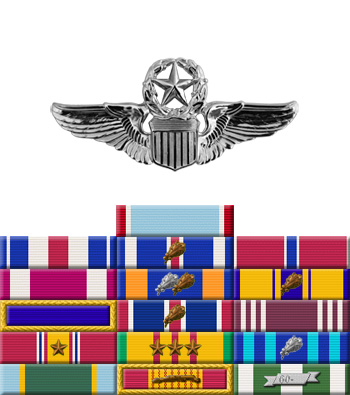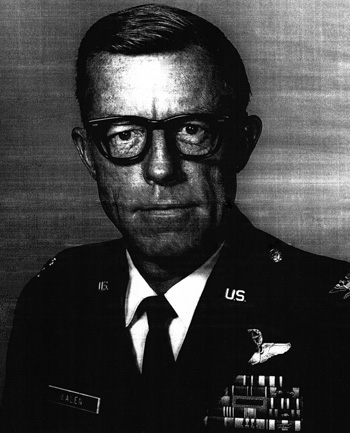
|
Herbert D. Kalen |
 |
|||
| Rank, Service | ||||
Colonel O-6, U.S. Air Force |
||||
| Veteran of: | ||||
|
||||
| Tribute: | ||||
Herbert Kalen was born on January 8, 1929, in Tarrytown, New York. He enlisted in the Aviation Cadet Program of the U.S. Air Force on September 18, 1953, and was commissioned a 2d Lt and awarded his pilot wings on December 18, 1954. Lt Kalen then completed helicopter pilot training and served as a helicopter pilot until June 1957, when he transitioned into fighters and joined the 6520th Test Group at Hanscom Field, Massachusetts, where he served until January 1964. He next served with Air Force Systems Command at Eglin AFB, Florida, from January 1964 to January 1967, when he deployed to Southeast Asia as an HH-3E Jolly Green Giant helicopter pilot with the 37th Aerospace Rescue and Recovery Squadron (ARRS) at Da Nang AB in the Republic of Vietnam until January 1968. Maj Kalen then served with the 48th ARRS at Eglin AFB, Florida, from January 1968 to February 1971. During this time, he participated in the Son Tay Raid on November 21, 1970. His next assignment was as a staff officer with Headquarters Aerospace Rescue and Recovery Service at Scott AFB, Illinois, where he served from February 1971 to April 1974. Col Kalen's final assignment was at Kirtland AFB, New Mexico, where he retired from the Air Force on September 30, 1979. Herbert Kalen died on August 27, 2016, and was buried at Arlington National Cemetery. |
||||
|
||||

